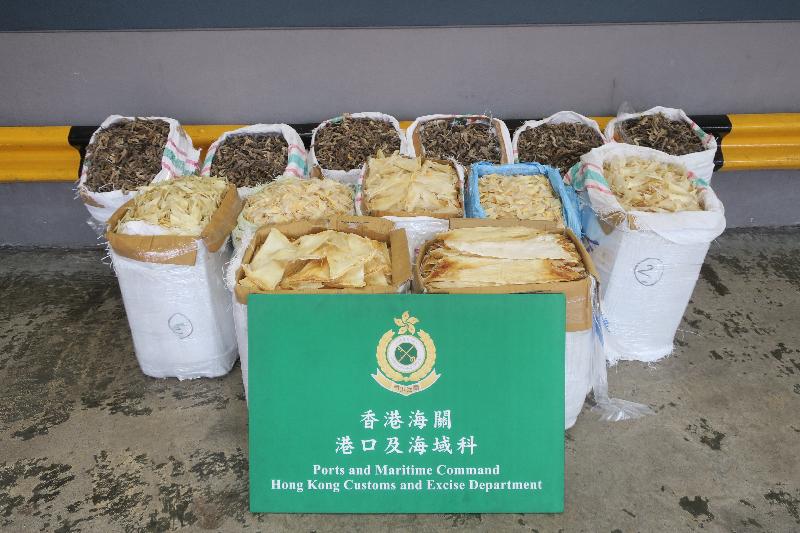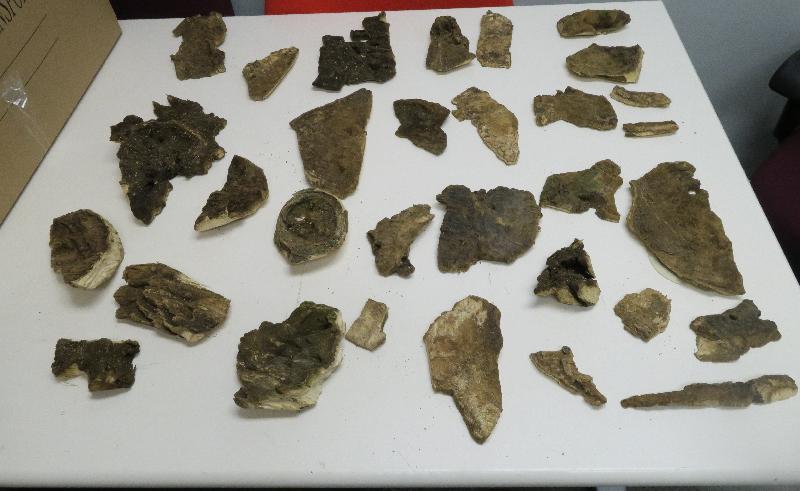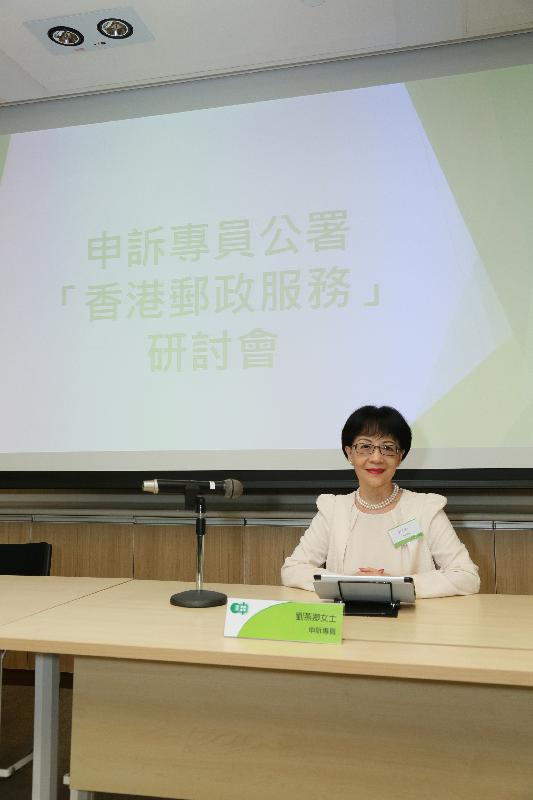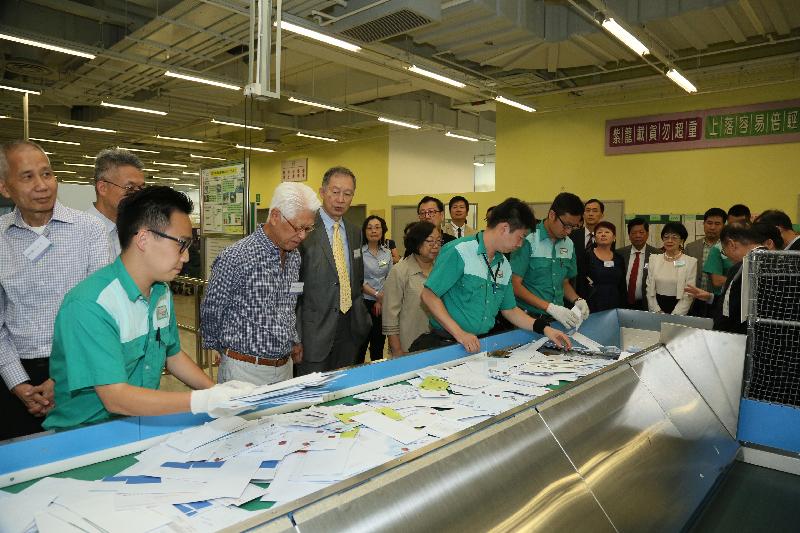Hong Kong Customs seizes suspected scheduled dried seahorses and dried shark fins (with photo)
Hong Kong Customs seized about 140 kilograms of suspected scheduled dried seahorses and 220kg of dried shark fins from a container with an estimated market value of about $420,000 at the Kwai Chung Customshouse Cargo Examination Compound on June 4.
Through risk assessment, Customs officers inspected a 20-foot container declared to contain fish maw arriving in Hong Kong from Indonesia. Upon inspection, Customs officers found the suspected scheduled dried seahorses and dried shark fins in the container.
After follow-up investigation, Customs officers yesterday afternoon (June 6) arrested a 64-year-old male director and a 63-year-old female director of a dried seafood shop suspected to be involved in the case in Sheung Wan.
Investigation is ongoing. The arrested persons have been released on bail pending further investigation.
Under the Import and Export Ordinance, any person found guilty of importing or exporting unmanifested cargo is liable to a maximum fine of $2 million and imprisonment for seven years.
Under the Protection of Endangered Species of Animals and Plants Ordinance, any person found guilty of importing or exporting an endangered species without a licence is liable to a maximum fine of $10 million and imprisonment for 10 years.
Members of the public may report any suspected smuggling activities to the Customs 24-hour hotline 2545 6182 or its dedicated crime-reporting email account (crimereport@customs.gov.hk).



